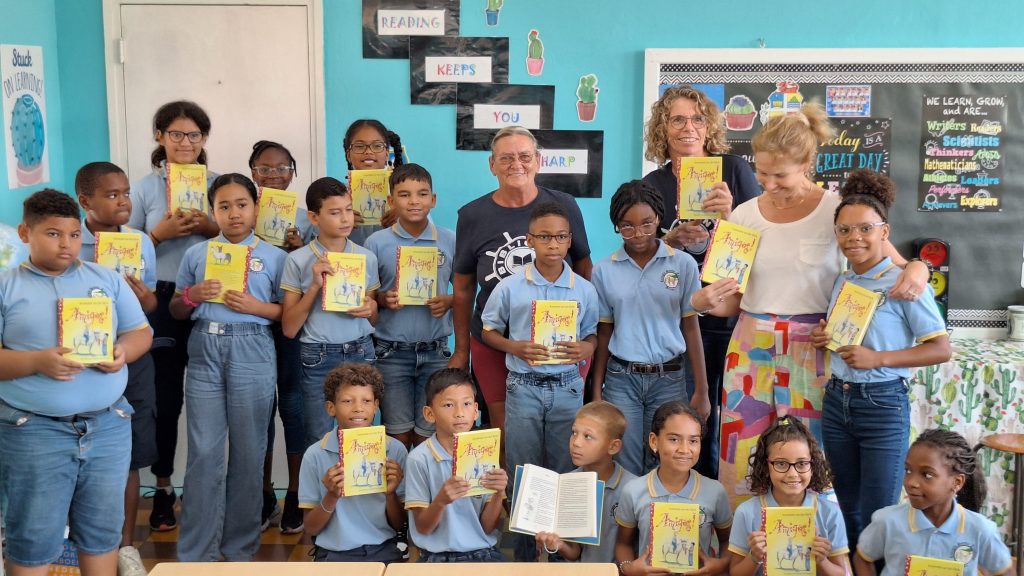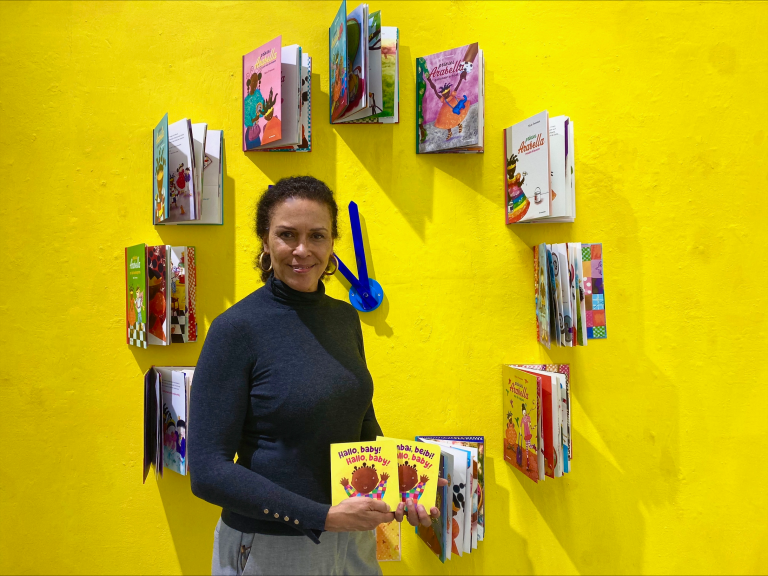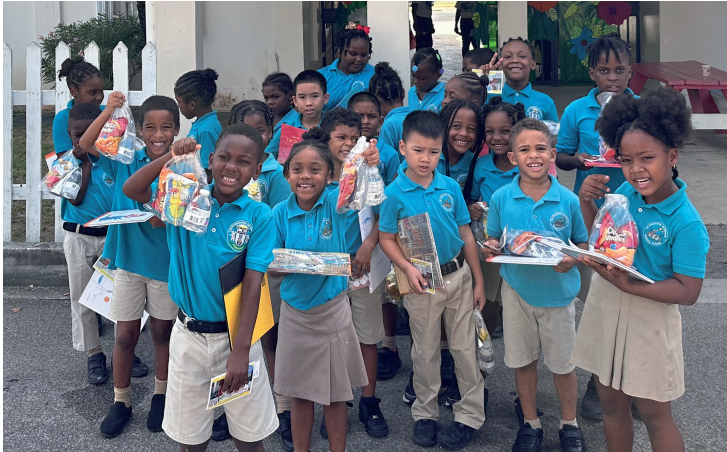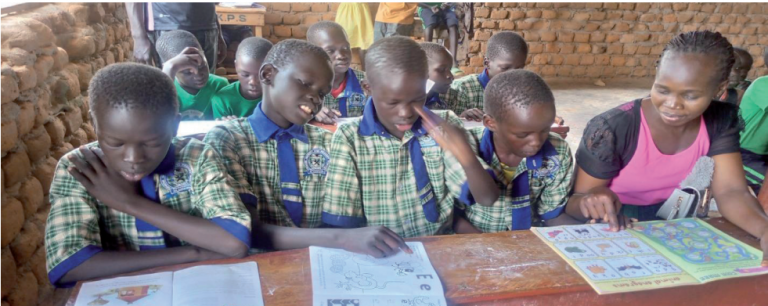Introducing: Rick and Annemarie, brand-new Biblionef ambassadors.
Knowing multiple languages affects children’s language development. Learning more than one language has benefits, like making kids more flexible in their thinking and better at communicating. But there are also challenges, like switching between languages and deciding which one to use. Read the article about our new abmasadors dr. Rick de Graaff and Annemarie van den Brink and their experience in creating an environment where kids can learn multiple languages.
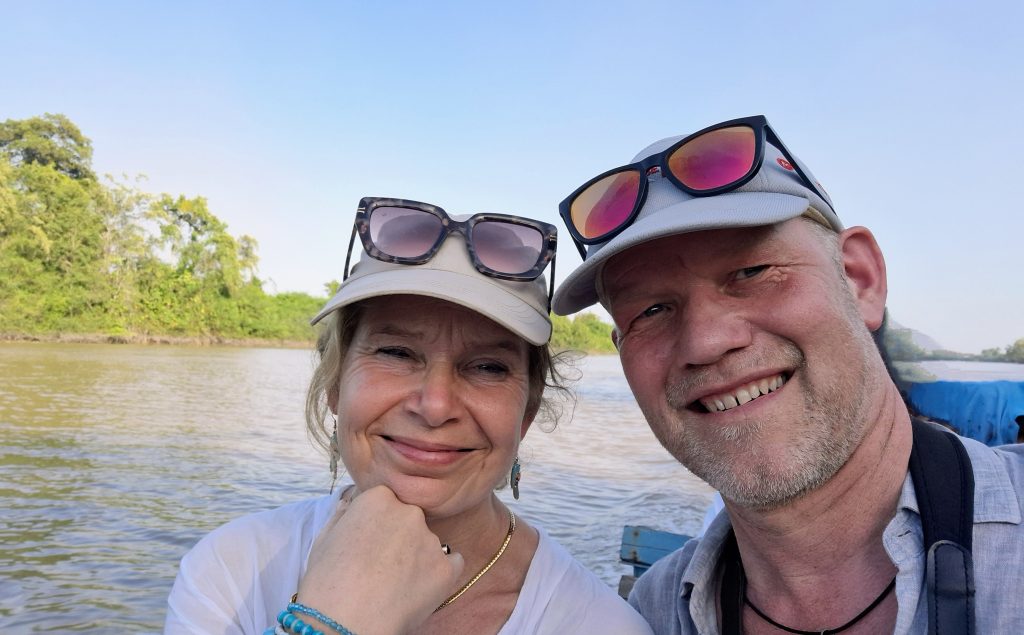
Rick de Graaff: “Language is the means to understand, inform and stimulate each other, across cultural boundaries. As a professor of foreign language didactics, I stand for challenging and motivating education in which the languages and identities of all pupils are heard and seen. That is why I am committed to Biblionef: to give all children the opportunity and pleasure to read, in whatever language, in order to better understand and appreciate themselves and the world.” Prof. dr. Rick de Graaff – Universiteit Utrecht (uu.nl)
Annemarie van den Brink: “Reading is magical, a book offers a mirror to recognise yourself and a window to discover new worlds. It enriches your language, strengthens your relationship with yourself and others and broadens your horizons. As a children’s book author, poet and creative writing teacher, I love creating these worlds for and with children. I wish for every child such a world, and with pleasure I encourage schools and libraries to enjoy languages and stories through books. The aim of Biblionef therefore fits me like a captivating book cover.” Annemarie van den Brink
Impressions from a school and library visit Suriname, Curaçao and Aruba
In February and March, we visited Suriname, Curaçao and Aruba. We enjoyed the nature, hospitality and shared history, but above all the wealth of languages and cultures. Also in education, where Dutch still has an important place, but other student languages like Sranan, Sarnami or Papiamento are so important. We would like to share a few language and reading education experiences.
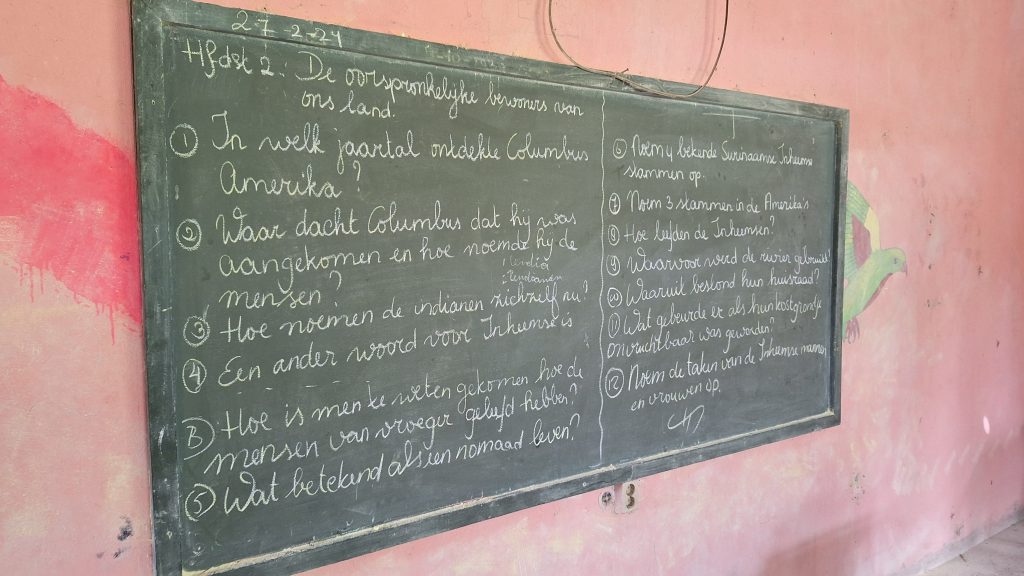
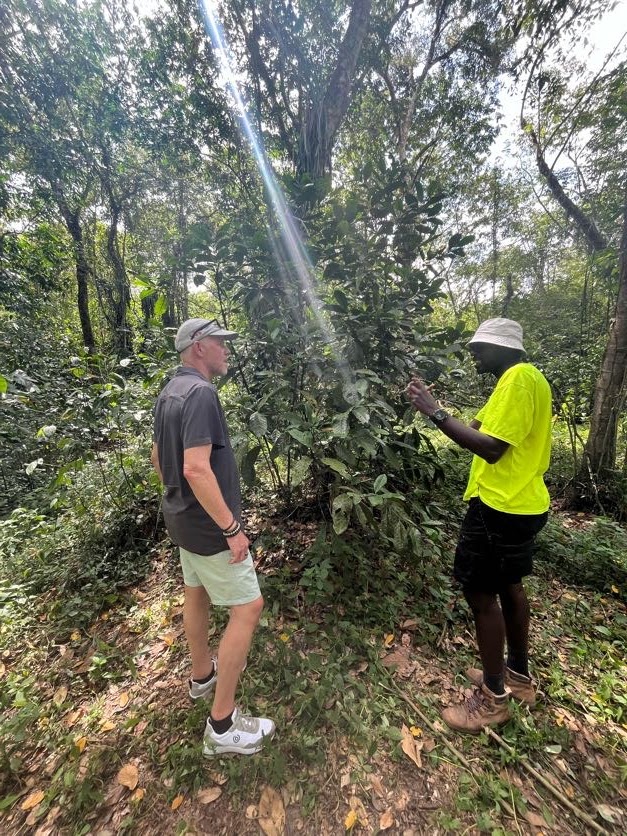
Our guides in Suriname were often young students. We were always deeply impressed by their Dutch, usually their third language. They told us how important reading had been for them: with donated Dutch books, they could enrich their language and expand their world. Even if those books were about distant worlds, like Appie Kap gaat skiën or Pluk van de Petteflet ( old Dutch childrens books).
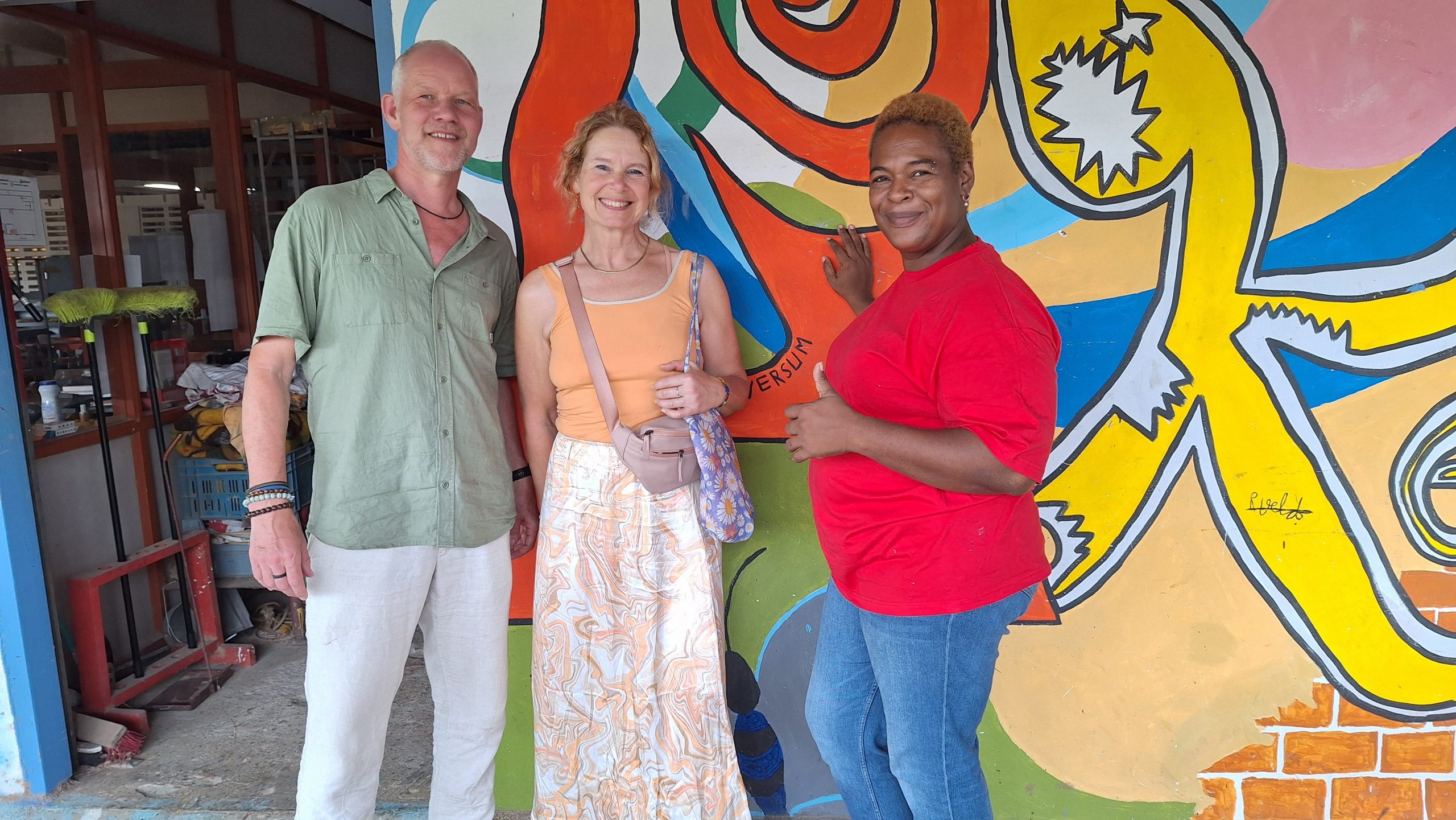
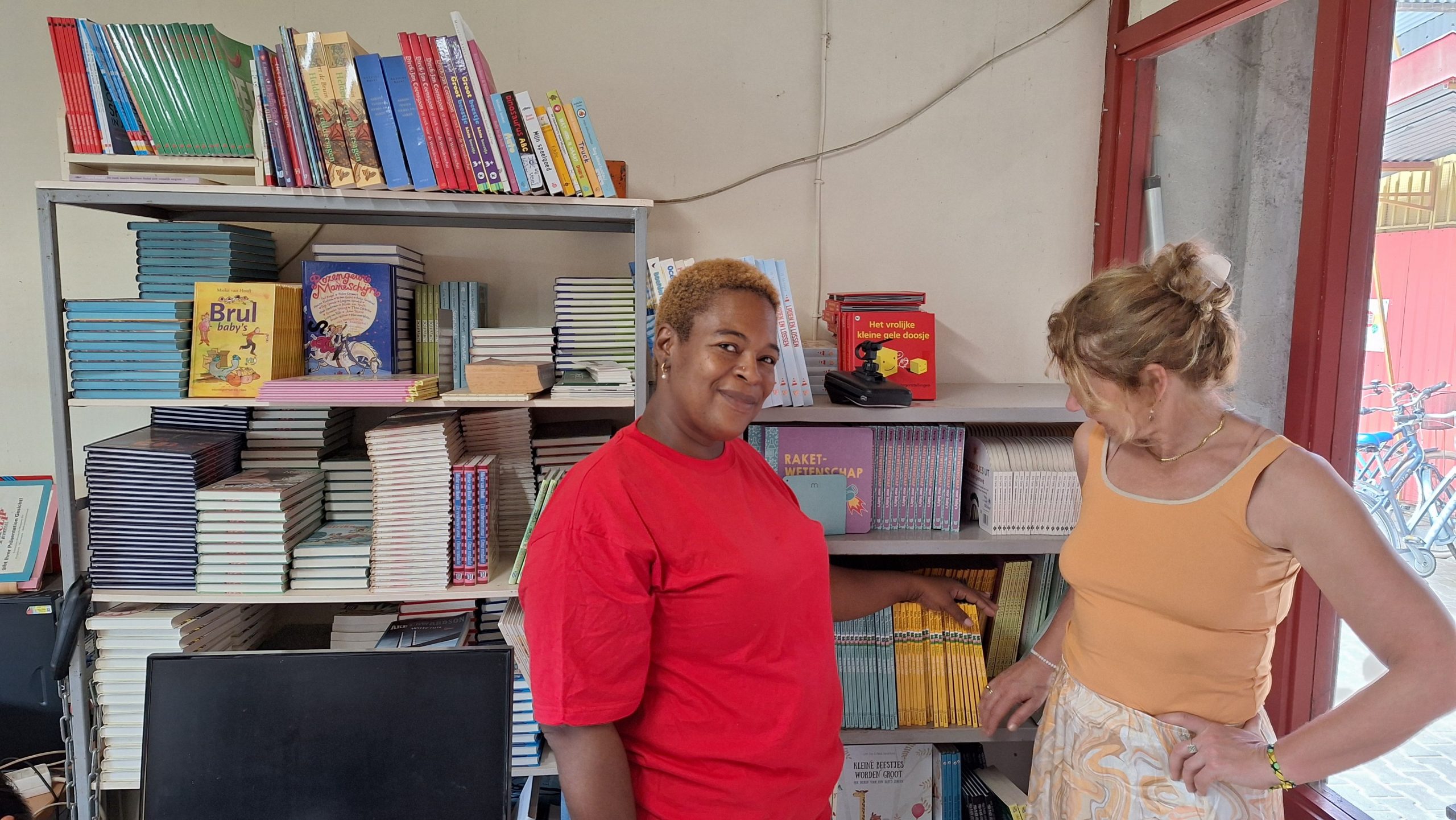
On the Suriname River deep inland, we visited the two classes of the village mulo (junior high school). A school with hardly any reading and textbooks: students literally had to copy the teaching material from the blackboard into their notebooks. A cardboard box waited at the door, in which visitors could leave money for books and other learning materials.
In Paramaribo, the Uni Pikin Foundation distributes Biblionef donations to schools and libraries throughout the country. Unu Pikin also offers unemployed and underprivileged people the opportunity to gain work experience: by refurbishing and selling second-hand bicycles and school furniture from the Netherlands, and also by making school furniture itself.
Paramaribo’s library made a desolate impression: mostly old discarded books from Dutch libraries. No visible initiative to encourage reading interest. Easier to understand if you know that the Surinamese government has no money for libraries. But the small library in the village of Groningen, despite this shortage, showed that you can set up a motivating reading environment with few resources. Just a pity that since the corona-lockdowns, hardly any classes visit the library.
In Curaçao, we visited multilingual secondary schools. At these schools, education is partly in Dutch and partly in English, and Papiamentu is both a school subject and one of the languages of communication. Teachers we spoke with stressed the importance of development in these three languages (and also in Spanish) and the importance of good books at school. After all, reading at home does not come as a matter of course for most students.
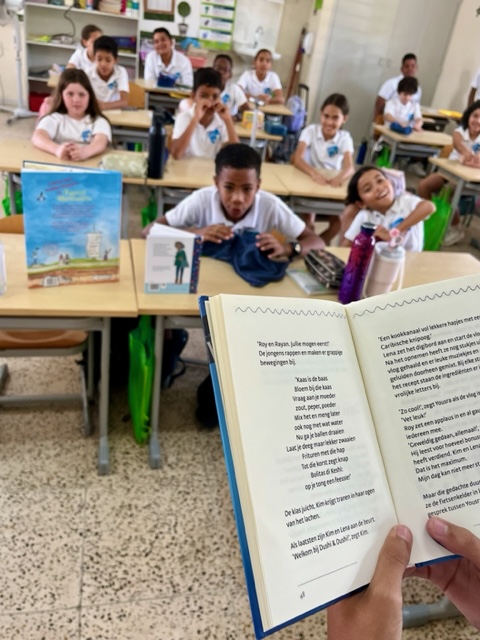
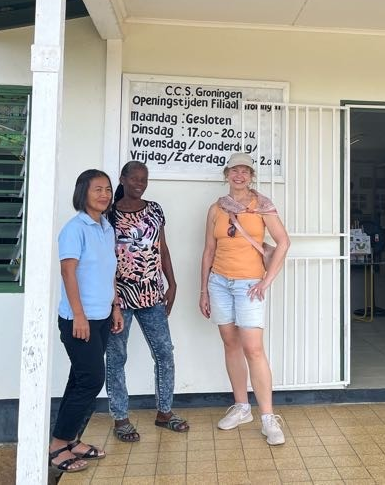
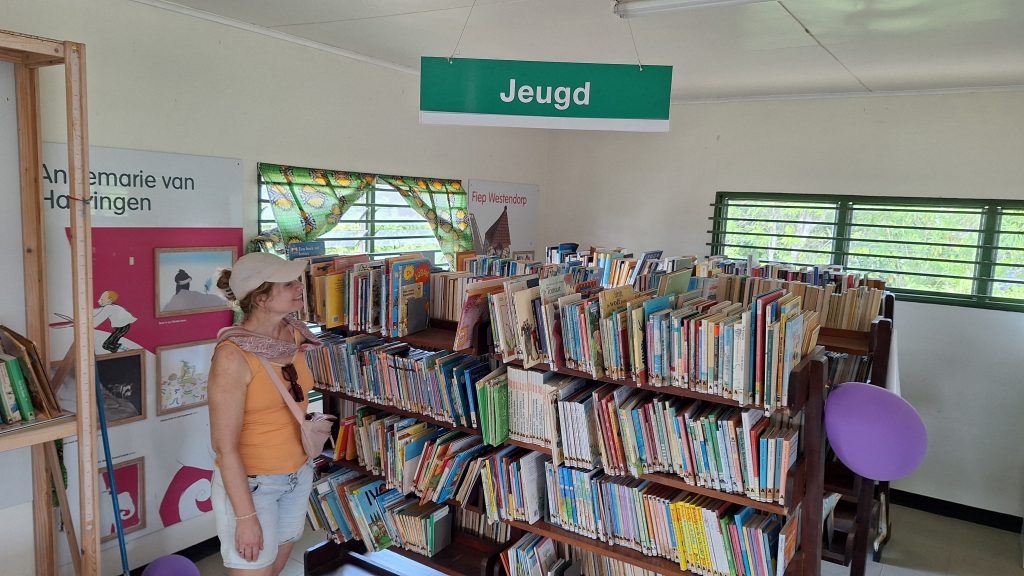
At a primary school in Willemstad, Annemarie read from her own work and made a rap with the children, based on her book Topkok Kim in which Curaçao plays a role. In San Nicolás, a surprise awaited the children prepared by the Biblionef volunteers: they all received a copy of Amigos! to take home, one of Annemarie’s books. But not before Annemarie had told them about her book and played a multilingual word game with the class.
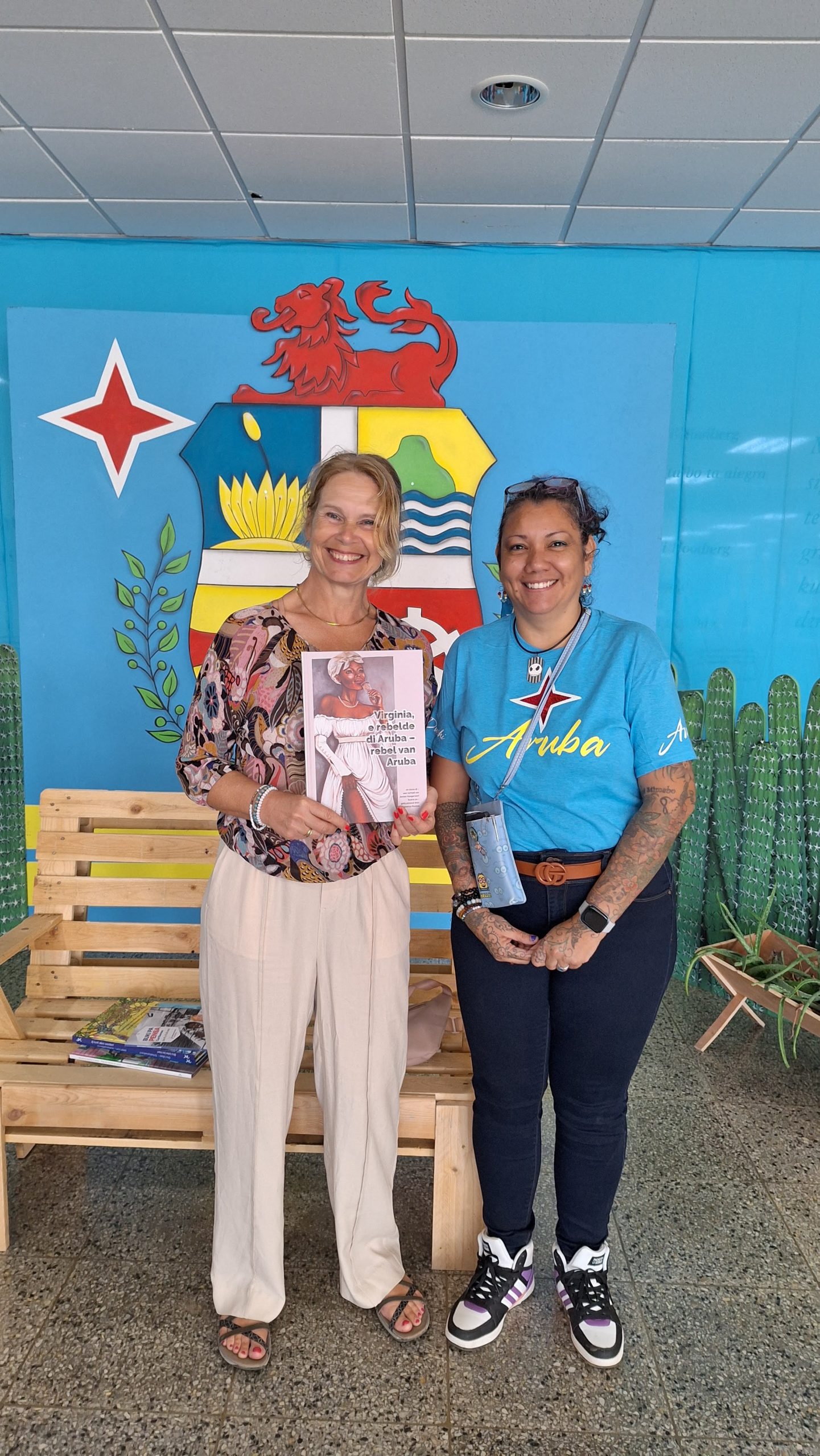
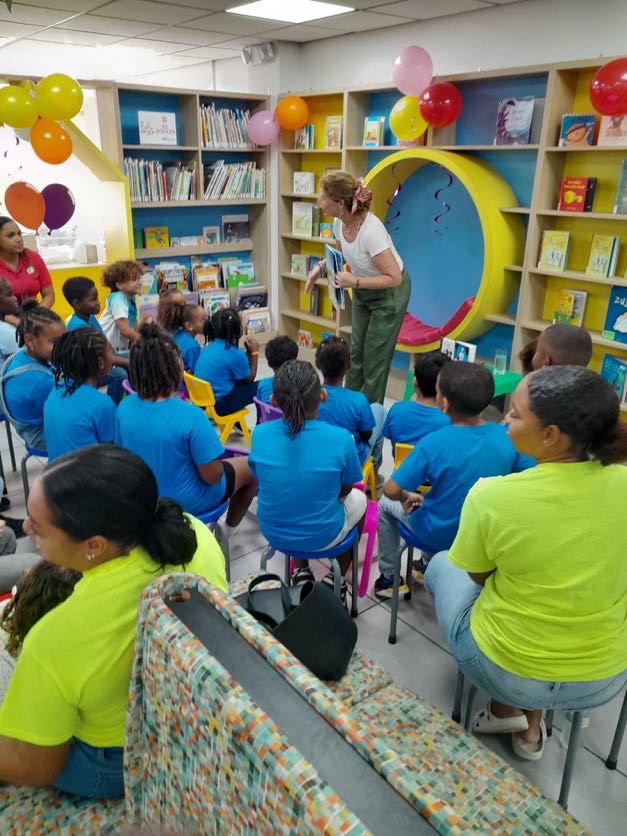
What insights did we return to the Netherlands with? Book donations through Biblionef are enormously valuable, but we can do even more than just donate books. By eliciting rich language through the books and exploiting multilingualism, you give children a gift for life. That is why we took the initiative to join the Anansi de Spin in de Klas project and were able to donate 100 Anansi books in Sranantongo for Suriname. Because a buku/buki/book/boek is awesome!
